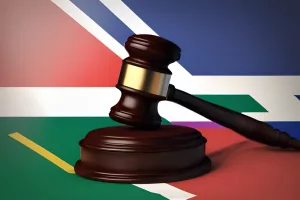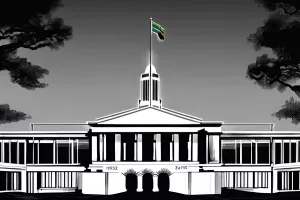South Africa has taken a bold step towards tackling climate change with the recent signing of the Climate Change Bill into law by President Cyril Ramaphosa. The law provides a structured approach to South Africa’s response to climate change, addressing urgent issues such as governance, climate change mitigation strategies, and the potentially catastrophic effects on agriculture and food supplies. This legislation sets a precedent for South Africa’s regional partners and the international community, highlighting the importance of collective action in the face of a global environmental crisis.
The Committee on General Intelligence Laws Amendment Bill Makes Progress on its Report
The committee has the power to explore other parts of the legislation not initially covered in the Bill. The committee has deferred some proposed amendments to the Seventh Parliament for further processing. This milestone underscores the committee’s dedication to ensuring the General Intelligence Laws Amendment Bill serves the best interests of the public while accurately reflecting the nation’s Constitutional mandates.
Parliament is preparing for the transition to the seventh session as the sixth Parliament finishes its tenure. The National Assembly and National Council of Provinces are reviewing bills, motions, and committee reports, with both Houses holding plenaries on Thursday. The week showcases Parliament’s dedication to protecting public interest and adapting to the nation’s everchanging challenges.
Exciting news! On February 27, 2024, the National Assembly approved three important bills to improve governance, public administration, and data management in South Africa. The Public Service Amendment Bill proposes a decentralized approach to public administration, while the Public Administration Management Amendment Bill focuses on fairness in collective bargaining. The Statistics Amendment Bill seeks to improve data gathering and establish a unified platform for statistical data and analysis. These bills will now go to the National Council of Provinces for approval. Public engagement plays a crucial role in the parliamentary process, and citizens can interact with the process in various ways.
The National Council of Provinces (NCOP) recently passed three significant bills: The Eskom Debt Relief Amendment Bill, the Divorce Amendment Bill, and the Cannabis for Private Purpose Bill. The Eskom Debt Relief Amendment Bill introduces interest payments and enhanced supervisory processes on previously interestfree loans granted to Eskom, safeguarding vulnerable consumers. The Divorce Amendment Bill rectifies the nonrecognition of Muslim marriages in divorce cases, while the Cannabis for Private Purposes Bill balances civil liberties and public safety. Each bill represents an evolution in legislative reform, addressing a broad spectrum of national issues.
Reflections on the South Africa Legislative Sector International Oversight Summit: Assessing Progress and Future Hurdles
Deputy President Mashatile spoke at the South Africa Legislative Sector International Oversight Summit, praising the country’s progress in democracy and legislative accomplishments like the Electricity Regulation Amendment Bill and the Domestic Violence Act. He emphasized the importance of accountability, integrity, ethics, and transparency for the legislative sector’s role in improving the lives of South Africans. Mashatile also highlighted the upcoming National General Elections and the government’s commitment to progress and reform.
Elton Jantjies was a rugby star known for his talent as a flyhalf, but a doping scandal has tarnished his legacy. He is accused of using Clenbuterol, a banned substance, and is facing a fouryear suspension. This incident serves as a reminder of the consequences of doping and has sparked a necessary conversation about sports integrity. The rugby world is now watching and waiting for a future where fair play becomes the undisputed champion.
Preserving South Africa’s Sporting Legacy: The Need for Urgent Anti-Doping Legislation
South Africa’s sports legacy is in peril due to the government’s failure to enact antidoping legislation in line with the World AntiDoping Agency’s latest code. The national rugby and cricket teams, the Springboks and the Proteas, may not be able to represent their country under its flag and anthem, which could have serious consequences. Sports have played a crucial role in unifying South Africa, and the government must act urgently to safeguard its sporting legacy and national pride.








